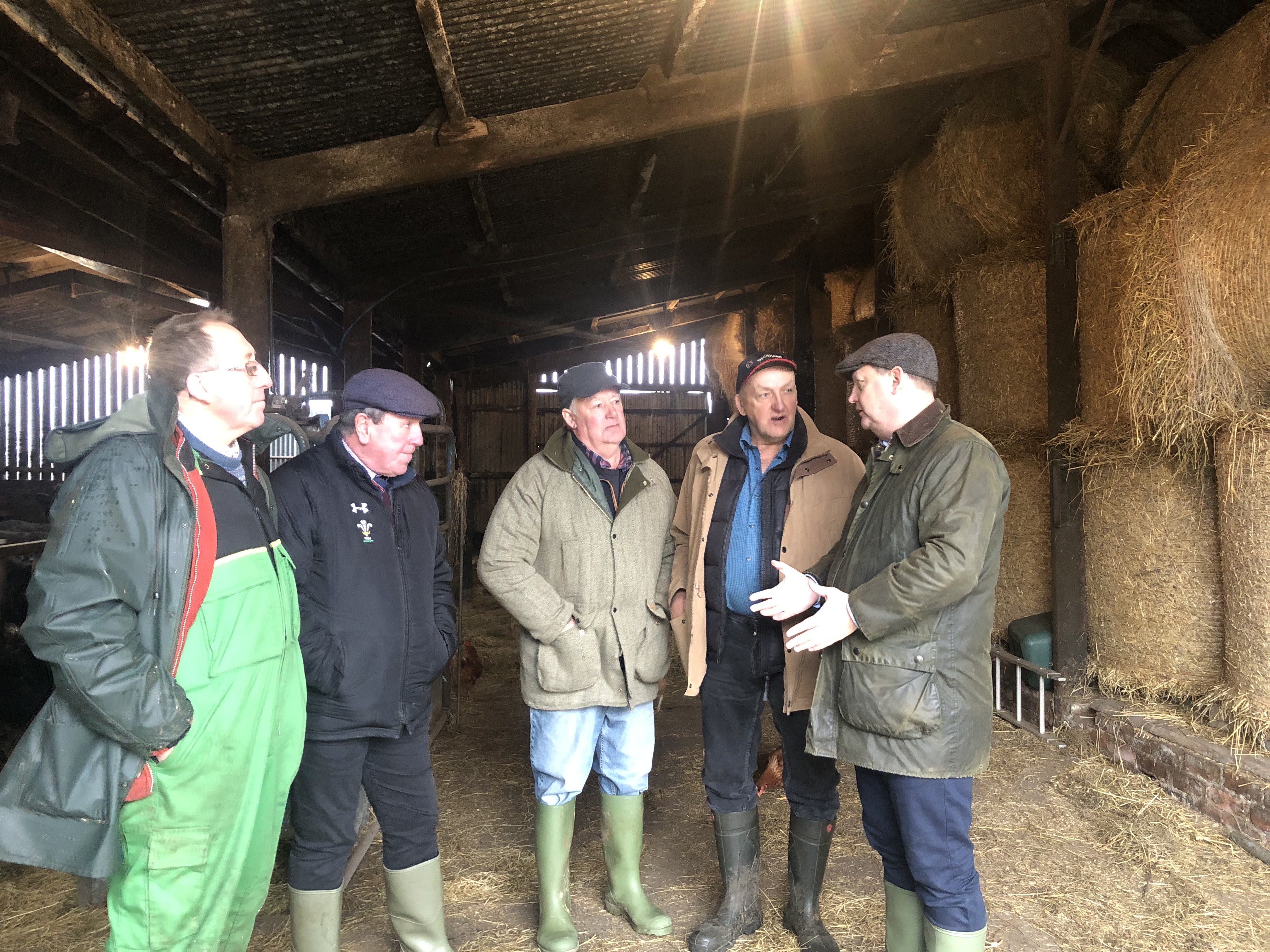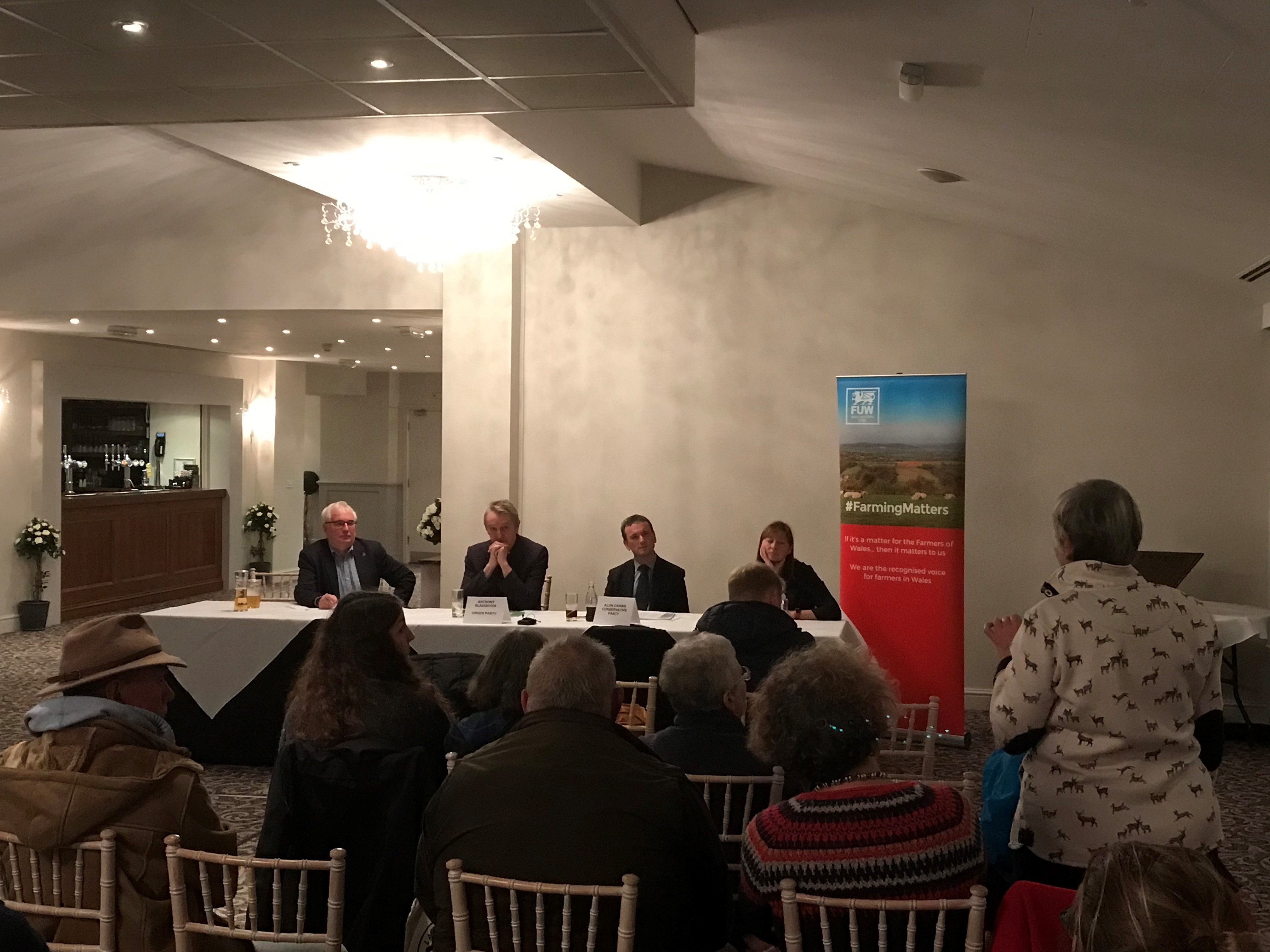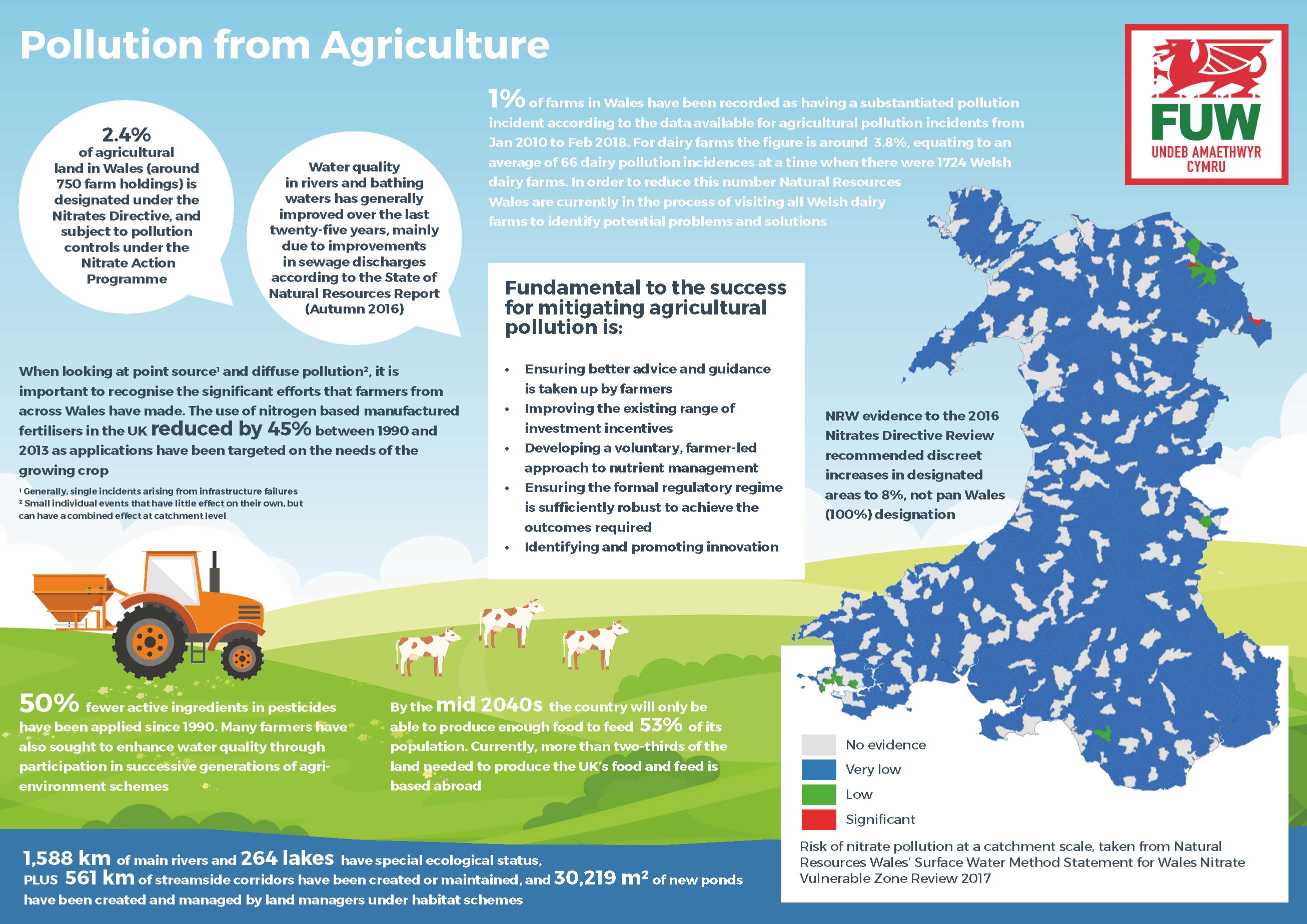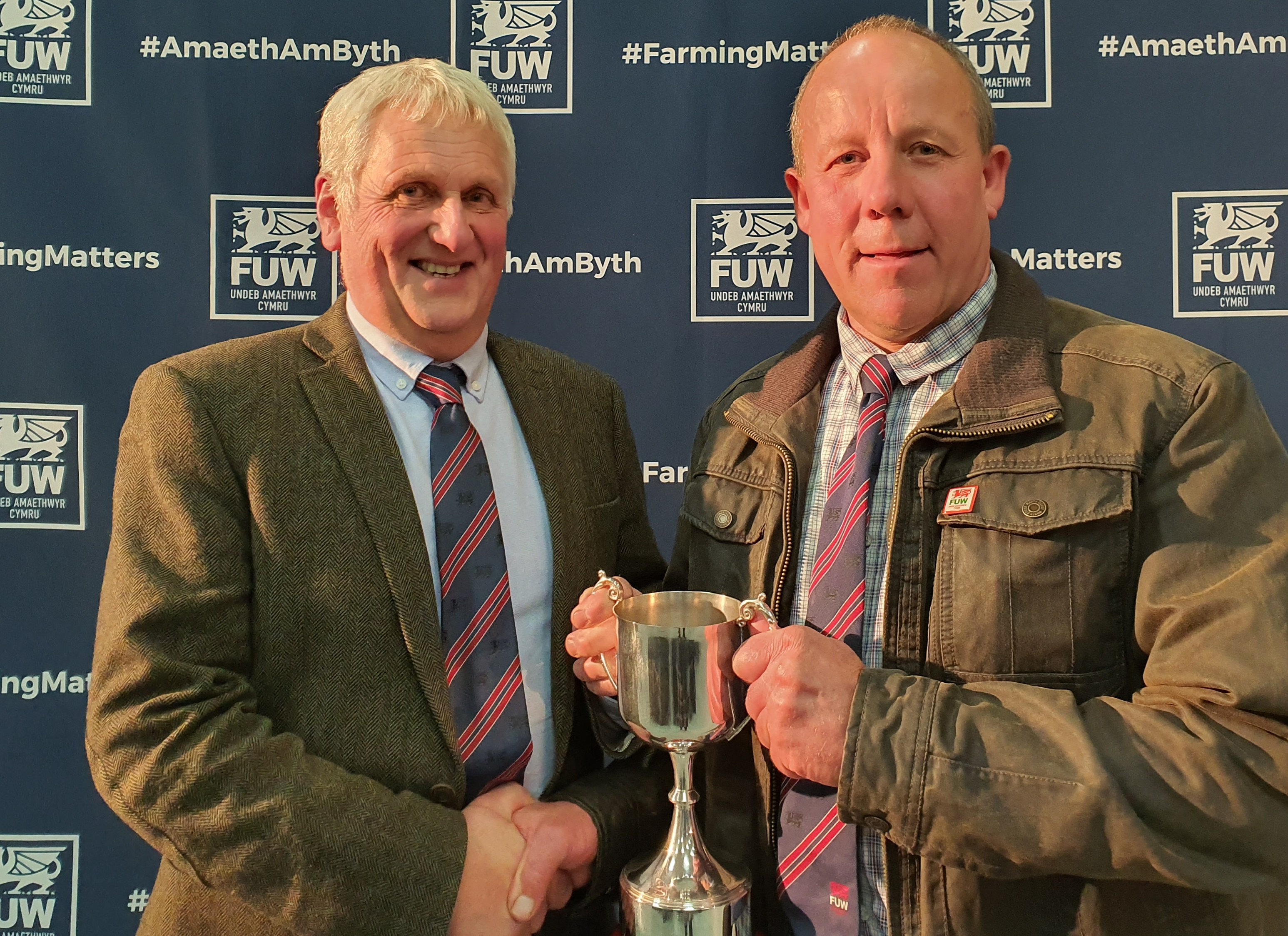 The implications of a ‘hard Brexit’ and fear of losing free access to the EU’s Single Market, as well as the pivotal role farming families play in keeping the Welsh economy going, were highlighted by the Langford family from Tredegar in a meeting with local AM and former Welsh Agricultural Minister, Alun Davies.
The implications of a ‘hard Brexit’ and fear of losing free access to the EU’s Single Market, as well as the pivotal role farming families play in keeping the Welsh economy going, were highlighted by the Langford family from Tredegar in a meeting with local AM and former Welsh Agricultural Minister, Alun Davies.
Wayne, his wife Tracy and daughter Emily, farm at Penrhyn Farm, Nantybwch, Tredegar, which is situated 1,100 feet above sea level at the head of the Sirhowy valley.
The typical family farm extends to 140 acres, half-owned, half tenanted, plus hill rights on the Llangynidr Common and is home to 300 Talybont type Welsh Mountain ewes plus followers, which are kept together with 20 Galloway cross Angus Suckler cows.
Wayne regards the Brexit negotiations pivotal to the future of Welsh Hill farms and was keen to highlight the vital role farmers play in preserving the rural economy.
Speaking on farm, he said: “Farming matters in so many ways that are seldom realised. Not only do farms produce food but they are also the cornerstone of our rural economies. Family farms, in particular, are at the heart of our rural economy, caring for our landscape, and of course our culture.
“They make innumerable other contributions to the well-being of Wales and the UK. Central to such benefits is the production of food and the improvement in domestic food security.
“All those businesses who supply essential services, materials, and machinery to farmers, through to the farmers themselves and their products, to the processors who turn them into food, and the consumers themselves, have a critical part to play in our rural economy. And that is at stake if we get Brexit wrong.”
Wayne is particularly concerned about a bad Brexit outcome and highlighted that as an industry, Welsh agriculture is particularly vulnerable to the impacts of losing access to the affluent mainland European markets which are on our doorstep.
“The implications of a ‘hard Brexit’ and losing free access to the EU’s Single Market would be particularly acute for Wales. As a family, we are very concerned about it all and urge the next UK Government to do all it can to ensure that those fears don’t become a reality.
“Of course these concerns don’t fall into the remit of the Welsh Government but I would urge every politician, whether in Cardiff or Westminster, to work in genuine partnership with the agricultural industry and develop a framework of common principles which underpin further policy development. It really is crucial to ensure the economic and environmental sustainability of family farms, for the sake of all our futures.”
During his visit, the former Minister, who was born close to Penrhyn Farm, emphasised that he realised the vital role that farming plays in preserving the uplands of Wales.
“I would like to thank Alun Davies for joining us on the farm visit and listening to our member’s concerns. I feel encouraged that he pledged to support innovative ways of maintaining stock on common land in order to preserve the ecological balance, and environmental stability of the commons,” said FUW Gwent CEO Glyn Davies.



 Farmers from the Vale of Glamorgan came together to quiz the general election hopefuls in an agricultural husting event, which was held at the Bear Hotel in Cowbridge.
Farmers from the Vale of Glamorgan came together to quiz the general election hopefuls in an agricultural husting event, which was held at the Bear Hotel in Cowbridge.  If current Welsh Government proposals go ahead, from January 1 2020 all registered holdings across Wales, regardless of size, will have to comply with new land management regulations aimed at improving water quality. To all intents and purposes, the proposals mirror the regulations which apply in Wales’ Nitrate Vulnerable Zones, which currently cover just 2.3 per cent of Wales’ landmass.
If current Welsh Government proposals go ahead, from January 1 2020 all registered holdings across Wales, regardless of size, will have to comply with new land management regulations aimed at improving water quality. To all intents and purposes, the proposals mirror the regulations which apply in Wales’ Nitrate Vulnerable Zones, which currently cover just 2.3 per cent of Wales’ landmass.  The Farmers’ Union of Wales has welcomed today’s (Monday, November 25) announcement by Cabinet Secretary for Energy, Planning and Rural Affairs Lesley Griffiths that 75% of farmers (almost 12,000) will receive their full BPS 2019 payment on day one of the payment window, while businesses that do not receive their full payment, and have applied for the BPS Support scheme, will receive up to 90% of their BPS 2019 claim value.
The Farmers’ Union of Wales has welcomed today’s (Monday, November 25) announcement by Cabinet Secretary for Energy, Planning and Rural Affairs Lesley Griffiths that 75% of farmers (almost 12,000) will receive their full BPS 2019 payment on day one of the payment window, while businesses that do not receive their full payment, and have applied for the BPS Support scheme, will receive up to 90% of their BPS 2019 claim value.